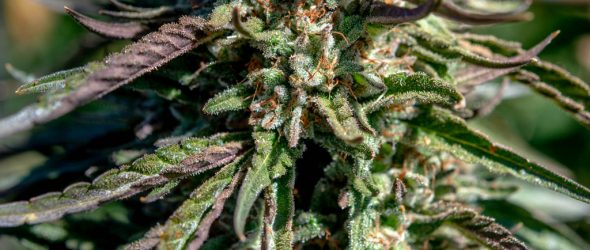After years of successive temporary bans, the Pico Rivera City Council has slammed the final nail in the coffin for retail and medical cannabis operations within the city.
It happened quick, without much discussion or any dissent from the unanimous council decision.
“We continue along the same route: It’s restricted from our city,” Mayor Brent Tercero said moments after the vote last week.
Until this point, the city had been using “urgency ordinances” which are meant to “address an immediate threat to public health, safety and general welfare,” according to a staff report.
The first urgency ordinance — a temporary 45-day ban on cannabis distributors and manufacturers — was passed in November 2017, about a 1 1/2 months before 2016’s Proposition 64 would take effect. The majority, 53%, of Pico Rivera voters supported that statewide measure which decriminalized recreational marijuana use.
Despite that, the council periodically extended the ban. The idea at the time, officials said, was to study the health and economic effects of marijuana and craft a regulatory regime that best fits Pico Rivera.
This time last year, city staff told the council the issue hadn’t been studied substantially enough; the council again passed another urgency ordinance, which it subsequently renewed.
At the time, then-Acting City Manager Arlene Salazar wrote in a report that the city had “not fully studied the full range of potential health, safety and welfare impacts of recreational marijuana” and “whether a complete ban” would be necessary.
Researching cannabis regulations simply wasn’t a priority, then-Mayor Gustavo Camacho said, given the short-staffed executive team during a period in which multiple city managers served for mere months before leaving the position vacant.
That ordinance was set to expire next month.
“Now, after completing its careful review, staff recommends that a permanent prohibition of commercial cannabis activities be enacted,” according to a staff report from last week’s City Council meeting.
Banning commercial cannabis “would prevent potentially detrimental health, safety, and quality of life issues,” according to the report, which cites “loitering, increased security risks to nearby residences and businesses, increased risk of theft and other crimes, dangerous waste, water and electricity usage, and strong odors that can be detectable beyond the property boundaries.” It doesn’t specifically spell out the health risks.
For residents, the move doesn’t change much: Cannabis stores are still banned. Medical dispensaries are also still banned, but the city still doesn’t have the authority to ban cannabis deliveries. Those are still happening.
The city also doesn’t have the power to keep residents from growing the plants in their own homes, but outdoor cultivation is banned.
The law reads: “Without stable, well-planned neighborhoods, sections of the city may quickly deteriorate with consequences to social, environmental and economic values.”
While this is a permanent ban, nothing is stopping the city from repealing the law should the city want to “take that up at a future time,” according to City Manager Steve Carmona.
A spokesman for Pico Rivera was not able to respond before publication.
Pico Rivera’s ban stands in a sharp contrast from nearby Baldwin Park and El Monte whose city councils have encouraged marijuana cultivators to set up shop in hopes of a financial boon. El Monte’s efforts have been spiked by protesters, largely from the nearby cities, but that hasn’t dampened officials’ enthusiasm.


